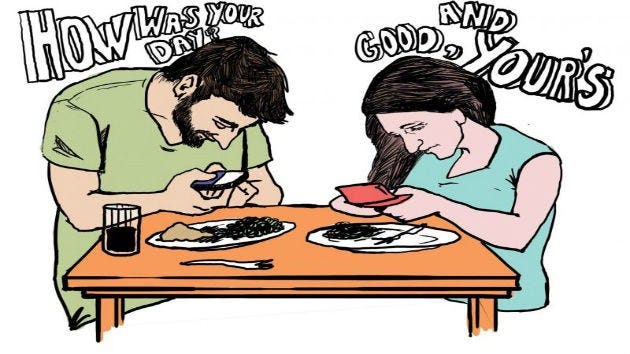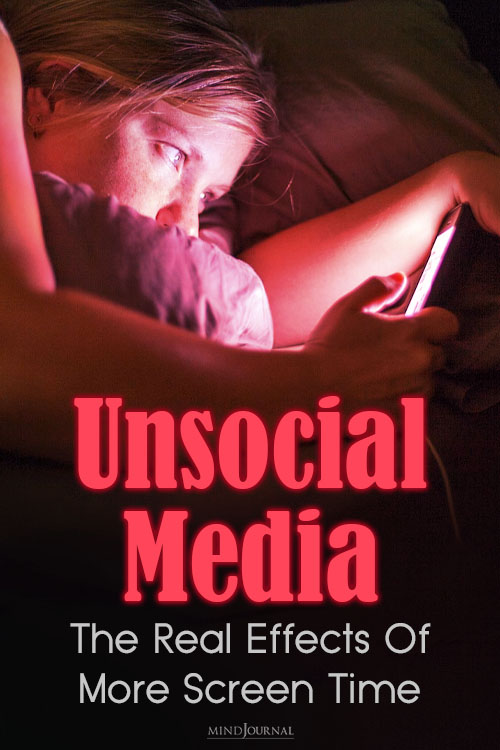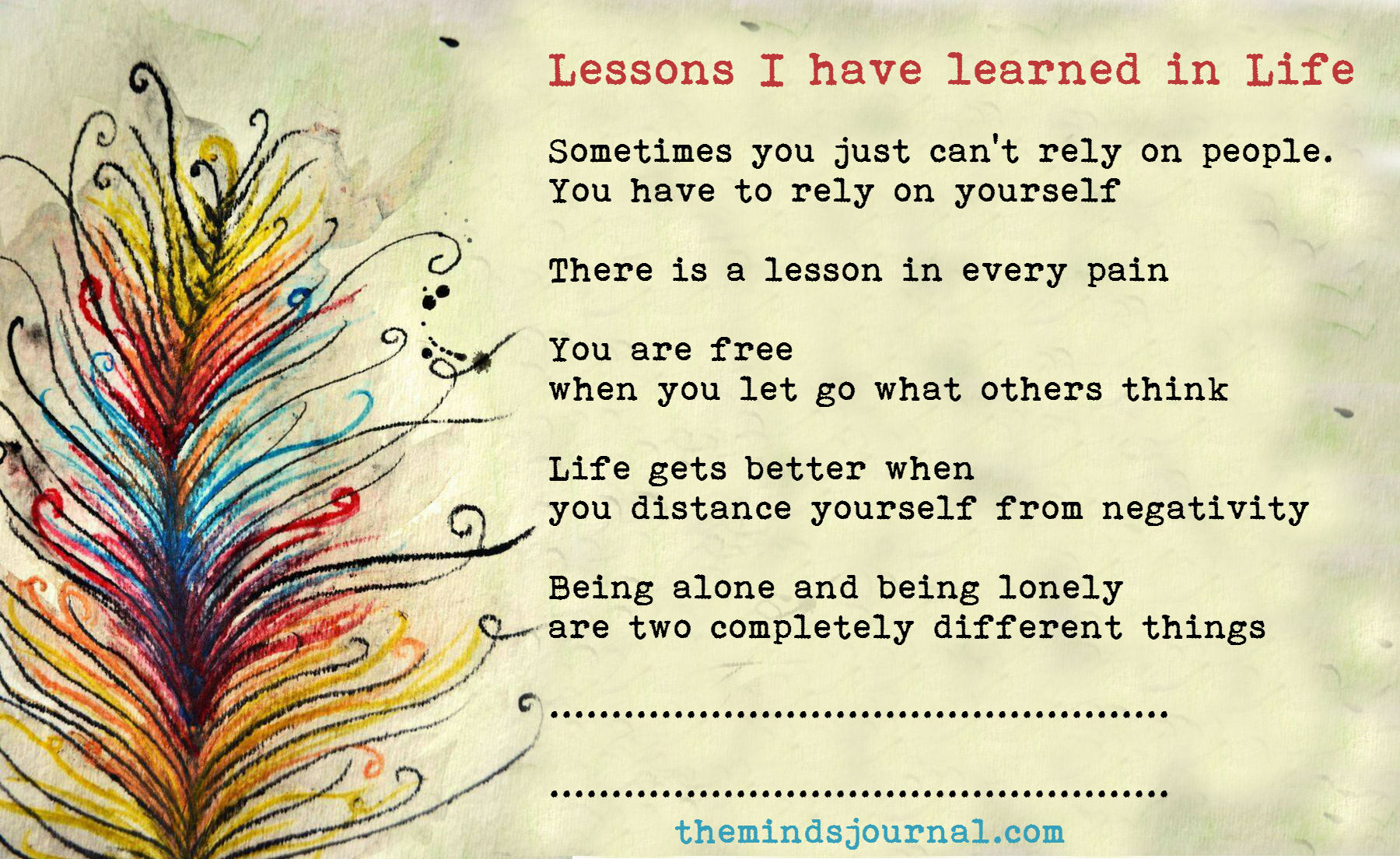Is social media making us less social in real life? Discover the true effects of screen time on face-to-face connections and overall well-being.
Loss of real-life interaction hampers social development.
Key points
- A significant amount of real-life social interaction seems essential for the development of emotional and personal skills.
- Research suggests that today’s youth has about half the exposure to critical real-life social interaction that pre-internet generations did.
- Trends in poor social development among young people suggest the need for urgent attention and specific strategies to enhance social competence.
Read More Here… How Screen Time Affects Quality Of Sleep And Overall Health of Young Adults
Way back in the last millennium, one of my early psychology teachers told me how he had just finished some research suggesting that people who were in a “weaker” position in a negotiation opted for phone calls over in-person meetings. The assumption was that a telephone could cover up the non-verbal cues that might give away their weaker negotiating position.
If a telephone allows a person to hide important communication cues, what about the omnipresent text message? IMHO a text message reveals none of the subtleties of communication – LOL. The presence of emojis is testimony to the fact that such non-verbal information is important but needs to be, and can be, fabricated. And is your emotional response to an emoji the same as it is to a real emotion genuinely expressed by a person standing in front of you?
How Real Is Virtual Interaction?
And at the dawning of the age of Zoom, how realistic is virtual communication? What is missing? Is critical social and emotional information accurately reflected when people are, for example, seated in front of a green screen that shows them floating in outer space or talking to you from the top of the Himalayas?
Perhaps these issues make interesting reading but are really of no consequence. After all, virtual meetings are not only here to stay but will soon threaten to change “reality” altogether.
However, evidence is mounting that such virtual communication is wreaking developmental havoc on the generation who were born into the internet age.
The Mental State of the World – Effects Of Screen Time
Sapien Labs is a non-profit organization that conducts research on mental health throughout the world. Their recent Mental State of the World Report shows some very concerning trends that reflect other data collected by a variety of organizations in the last few years.
In previous similar studies, Stone et al (2010) reported 2008 data that showed the 18-24 year age group was amongst the happiest and well-adjusted groups across the age spectrum.
Along the same lines, Keyes et al., (2019) showed a decline in depression amongst this age group from 1991 to 2011—but by 2018, the trend had reversed. Twenge et al (2018) reported that depression and suicide rates increased between 2010 and 2015, especially amongst females and one other group: those who were most active on social media.
While there presumably are numerous explanations for this decline in mental health and increase in suicide rates, numerous studies have focused on social media as a possible cause.
In a large national sample of 40,337 children and adolescents, Twenge et al. (2018) found that:
“Among 14- to 17-year-olds, high users of screens (7+ h/day vs. low users of 1 h/day) were more than twice as likely to ever have been diagnosed with depression, ever diagnosed with anxiety, treated by a mental health professional, or have taken medication for a psychological or behavioral issue) in the last 12 months.”
In another study, Kelly et al (2018) reported, “Greater social media use is related to online harassment, poor sleep, low self-esteem, and poor body image; in turn, these related to higher depressive symptom scores.”
Sapien Labs uses their own Mental Health Quotient (MHQ) that measures a number of mental health variables on a continuous 300-point scale, where each of the 6 categories is divided into 50-point units: Distressed—Struggling—Enduring—Managing—Succeeding—Thriving.
In their 2021 report based on more than 223,000 responses from 34 countries, Sapien Labs found some distressing trends.
The Enhanced Challenges of Adolescence – The Unsocial Media

The youngest group, 18-24 year-olds, had the worst mental health scores. In fact, an astonishing 44% of this group were “distressed” or “struggling” with their mental health, a finding that was independent of region or country. This compares to just 19% of this age group who were “succeeding” or “thriving.”
The areas where the scores were the lowest appeared in two categories: Social Self and Mood and Outlook. The most common complaints were feelings of sadness, hopelessness, and distress.
One reason why higher screen use is related to depression and poorer scores of social self, like low self-confidence and anxiety, is that such usage has replaced real-life interaction that is critical in developing a number of skills, like understanding another’s emotional state and interpreting non-verbal behaviors. Tara Thiagarajan, founder and chief scientist at Sapien, estimates that heavy users of screens have about half the exposure to critical real-life social interaction that pre-internet generations did, potentially rendering an 18-year-old today at the social skill level of a pre-internet 10-year-old.
This might indicate that it’s not so much the massive amounts of screen time per se but the loss of real-life interaction that hampers social development and elevates typical adolescent uncertainty to new levels of mental dysfunction.
More research will help unravel the dangers of high levels of virtual interaction, especially for those who have grown up with technology constantly at their fingertips. In the meantime, anyone involved with children and adolescents needs to ensure that technology does not rob this generation of natural and real-life social interactions, which is how we learn the fundamentals of relating to others and to ourselves.
Read More Here… Are Your Eyes At Risk? The Shocking Truth About Smartphone Vision Syndrome!
Access various resources like books, courses and insights on TheMiracleWithinYou.com.
References
Mental State of the World Report 2021. Tara Thiagarajan and Jennifer Newsom. Sapien Labs.
Kelly, Y., Zilanawala, A., Booker, C., and Sacker, A. (2018). Social Media Use and Adolescent Mental Health: Findings From the UK Millennium Cohort Study. eClinicalMedicine 6, 59-68. doi: 10.1016/j.eclinm.2018.12.005.
Stone, A.A., Schwartz, J.E., Broderick, J.E., and Deaton, A. (2010). A snapshot of the age distribution of psychological well-being in the United States. Proc Natl Acad Sci U S A 107(22), 9985-9990. doi: 10.1073/pnas.1003744107.
Twenge, J.M., and Campbell, W.K. (2018). Associations between screen time and lower psychological wellbeing among children and adolescents: Evidence from a population-based study. Preventive medicine reports 12, 271-283. doi: 10.1016/j.pmedr.2018.10.003.
Twenge, J.W., Joiner, T., Rogers, M.L., & Martin, G. (2018) Increases in Depressive Symptoms, Suicide-Related Outcomes, and Suicide Rates Among U.S. Adolescents After 2010 and Links to Increased New Media Screen Time Clinical Psychological Science (2018)
Share your thoughts on how social media is affecting our social development in the comments below!
Written by: Howard J. Rankin, Ph.D.
Originally appeared on: Psychology Today










Leave a Reply